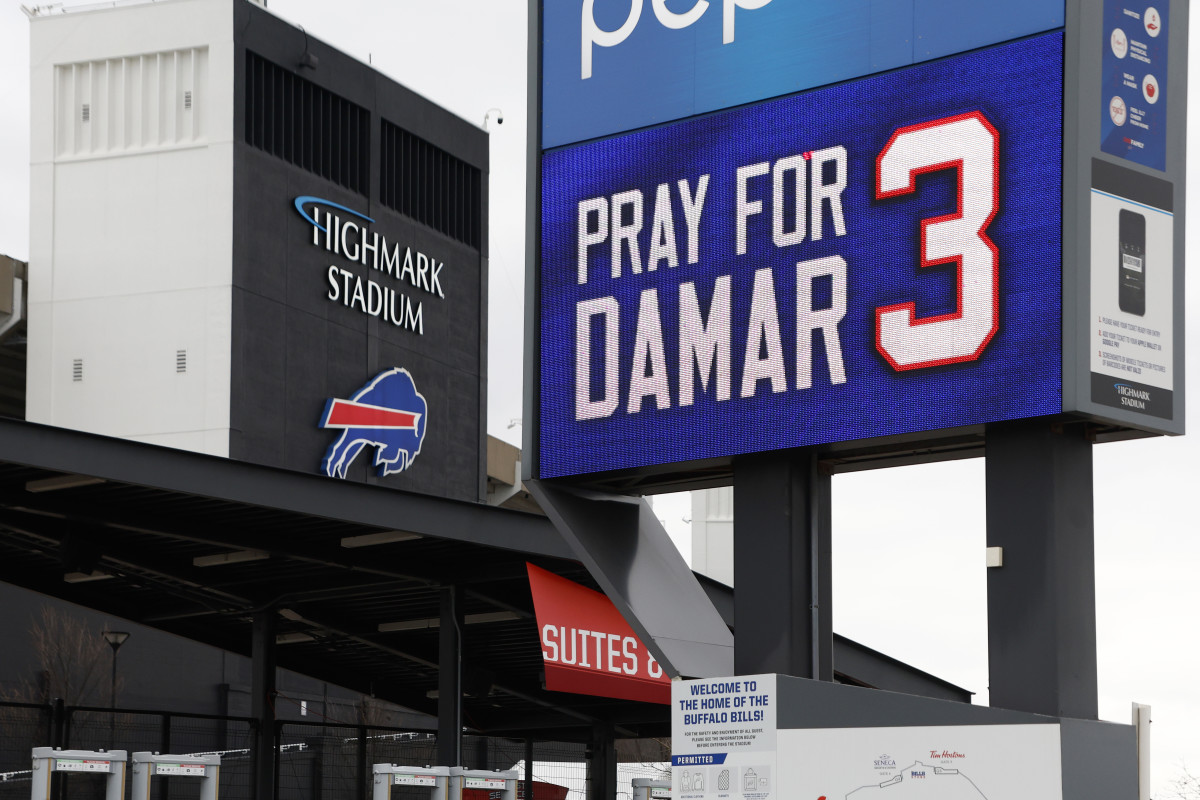The Bills Believe They Are Ready for Sunday. They Know They Have Changed.
Bills head coach Sean McDermott offered to answer the question first before his quarterback, Josh Allen, jumped in.
The gist: Do you really think you can play an NFL football game on Sunday?
The hidden subtext: After that? After the days of numbness and pain and personal fears and worries for a teammate that, only in the last 24 hours, started showing the signs of progress we’d been breathlessly waiting for?
“I do,” he said, sitting at a podium in a long sleeve t-shirt with his hands folded.
“I do as well,” McDermott added, before acknowledging that he is not a player, and that his role is different.

During the Bills’ first meeting with reporters since the on-field collapse of defensive back Damar Hamlin, there was some encouraging laughter. A cell phone went off in the auditorium, a ringtone of Paul Simon’s “Call me Al” playing at a blistering volume, and McDermott said: “at least it’s a happy song.” There were warm smiles, like when Allen talked about the way Hamlin would bring a boundless energy to Saturday pregame basketball, or when McDermott looked at his quarterback as he told an anecdote about his own grieving process: inviting players over to his house, via mass text, for prayer meetings.
There was a communal appreciation for Hamlin when teammate Dane Jackson, who played with Hamlin at Pitt, relayed a story about his own experience being carted off by an ambulance earlier this season. He remembered Hamlin’s voice amid a swarm of teammates, yelling: “I love you, D-Jack.”
There were also tears, like when McDermott was asked about what Hamlin’s reaction might be to a charity GoFundMe page that received more than $7 million in donations over the three days while he was in the hospital. Or when Allen said that this is the kind of event you lose sleep over, and that it’s a scene that plays over and over in his head.
There were moments of incredible, unfathomable maturity, like when Allen called the press conference back in session momentarily, just to tell folks to lay off Tee Higgins, the Bengals receiver who was tackled by Hamlin in the moments preceding his collapse. Or, when center Mitch Morse talked about the complexities of the grieving process, where 90 people in the building could all be experiencing what happened in 90 different ways. Even the mental fitness to make it through a packed NFL press conference, an exercise in patience and humility on a good day as reporters cut you off and shout over the end of a heartfelt sentiment, didn’t go unnoticed.
But there was that undercurrent, which everyone addressed on Thursday. In an NFL game, one millisecond of indecision can decide so much. It can indicate success and failure of a play. It can impact player safety. The fact that they are willing to try and mitigate that, during a week when so much of the process revolved around emotional recovery, is herculean in itself. McDermott declined to answer a question about whether the NFL should care about their ability to do so.
This team is willing to try, they said, because of a Zoom call with Hamlin’s father, Mario, on Wednesday. He told them that’s what his son would want.
This team is willing to try because, Allen said, “putting a helmet back on today was good for our team. Just to go through that process.” The team account posted a picture of Allen and cornerback Tre’Davious White giving synonymous thumbs’ up, like a pair of kids off on their first school field trip.
Josh Allen and Tre'Davious White at practice today (photo from @BuffaloBills) pic.twitter.com/4sRidecVHS
— Alaina Getzenberg (@agetzenberg) January 5, 2023
This team is willing to try because they’ve already given it such a monumental effort. McDermott said he or his coaches have heard from countless others in the NFL on how to deal with tragedy, how to compartmentalize and move on. Romeo Crennel, who witnessed the death of a player first-hand, Mike Tomlin and Marvin Lewis have all reached out with their own stories and advice.
Allen had mentioned that Hamlin’s event was the “freakiest of freak” accidents. The idea that this hasn’t happened in the NFL in decades may have provided some relief. He nodded affirmatively when McDermott brought up the power of God and prayer and when he mentioned the small army of additional grief counselors brought in by the team to handle the rigors of this week. In that way, they could be as steeled as possible to the task on Sunday. To the task for the rest of this season and for the rest of their careers.
But that doesn’t make them naïve to the subtext. Allen was asked what he expects Sunday to be like. He said it was a difficult question to answer. The updates on Hamlin keep them going for now, keep them encouraged. The Bills were already close, but this week they have had “open, honest, deep talks,” and “hugging someone and actually leaning into them.”
It was nice to talk about the good that will come. Certainly, Bills fans will envelop them like first-time grandparents when they see them on Sunday, taking on the Patriots. It is also fair and important to recognize what they’re dealing with. The kind of thing everyone was thinking about Thursday. The kind of thing Allen was talking about when he said: “I’d be lying to you if I didn’t say that some people are going to be changed forever after being on the field and witnessing that and feeling those emotions.”
